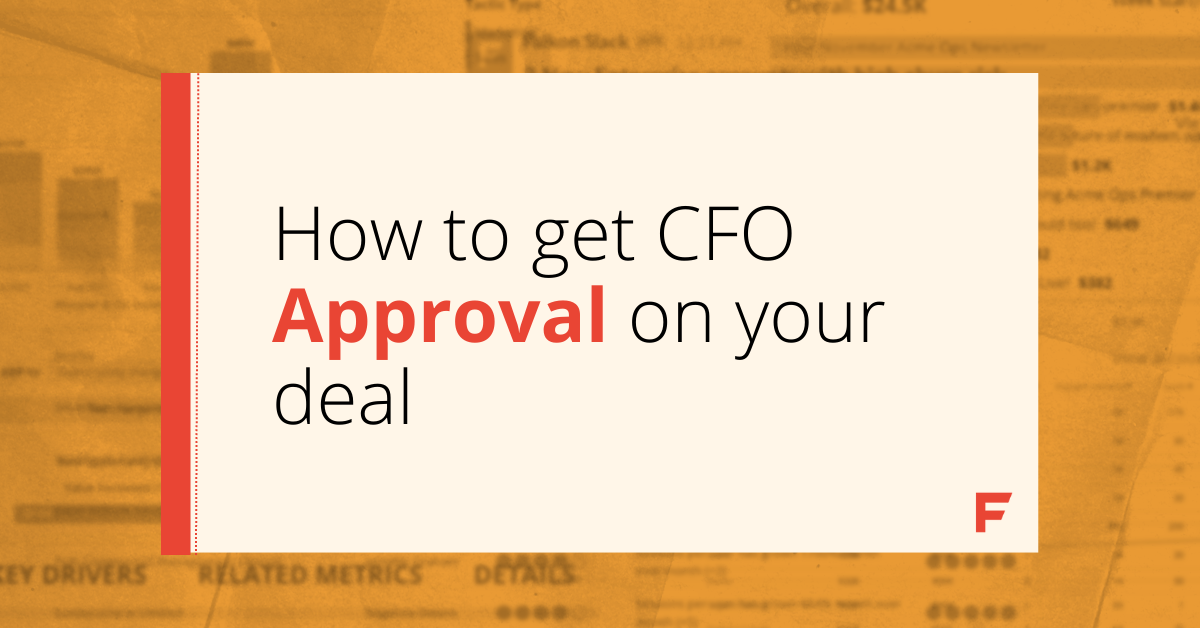In a bear market where “sure shot” deals die on the vine, securing the buy-in of a CFO has become a critical component to success, no matter what the deal size By recognizing the pivotal role CFOs play in strategic decision-making, we can tailor our sales process to meeting their expectations. The following are four key strategies to consider when aiming to earn a CFO’s approval.
Business Value Assessment: Hard Facts and Cold Numbers
From a CFO's perspective, the assessment of any SaaS product boils down to its tangible impact on the top line or bottom line. They need to see a bulletproof business value assessment that clearly articulates how your product will reduce costs, boost margins, or enhance revenue.
This isn't the time for vague promises or optimistic projections. CFOs are looking for quantifiable metrics, demonstrable ROI, and a clear-cut payback period. Present them with solid evidence of your product's value: use real-world data, case studies, and robust financial analysis to construct an irrefutable argument.
Competitive Analysis: Information is Power
A CFO will invariably ask why your product was chosen over others. Empower your champion with a comprehensive competitive analysis to answer this question convincingly.
This analysis should highlight your product's unique selling points, demonstrating how it stands out from the competition. Identify the differentiating factors that make your product the optimal choice, whether that's superior functionality, better customer support, or more flexible pricing.
CFO-Friendly Contract Terms
CFOs, being prudent and risk-averse, typically resist long-term commitments without the option for review or withdrawal. Therefore, asking a CFO to sign a three-year deal without an opt-out clause is likely to meet with resistance.
Instead, offer terms that are palatable to CFOs. Consider shorter contract durations, opt-out clauses, or value guarantees. Remember, flexibility and fairness in contract terms not only make your offering more attractive but also foster trust and goodwill.
De-risk the Deal
Finally, it's essential to assuage any lingering concerns a CFO might have about potential risks associated with adopting your product. Providing case studies and reference checks can offer assurance of your product’s reliability and effectiveness.
Similarly, opt-out clauses and value guarantees can serve as safety nets, further minimizing perceived risks. By demonstrating your commitment to customer satisfaction and success, you build credibility and trust – two elements that any CFO values highly.
In conclusion, successfully navigating the CFO approval process requires an approach that aligns with their priorities: clear business value, competitive advantage, flexible contract terms, and minimized risk. By focusing on these areas, you can effectively communicate with CFOs in their language, thereby enhancing your chances of securing their buy-in and setting the stage for long-term customer success.

